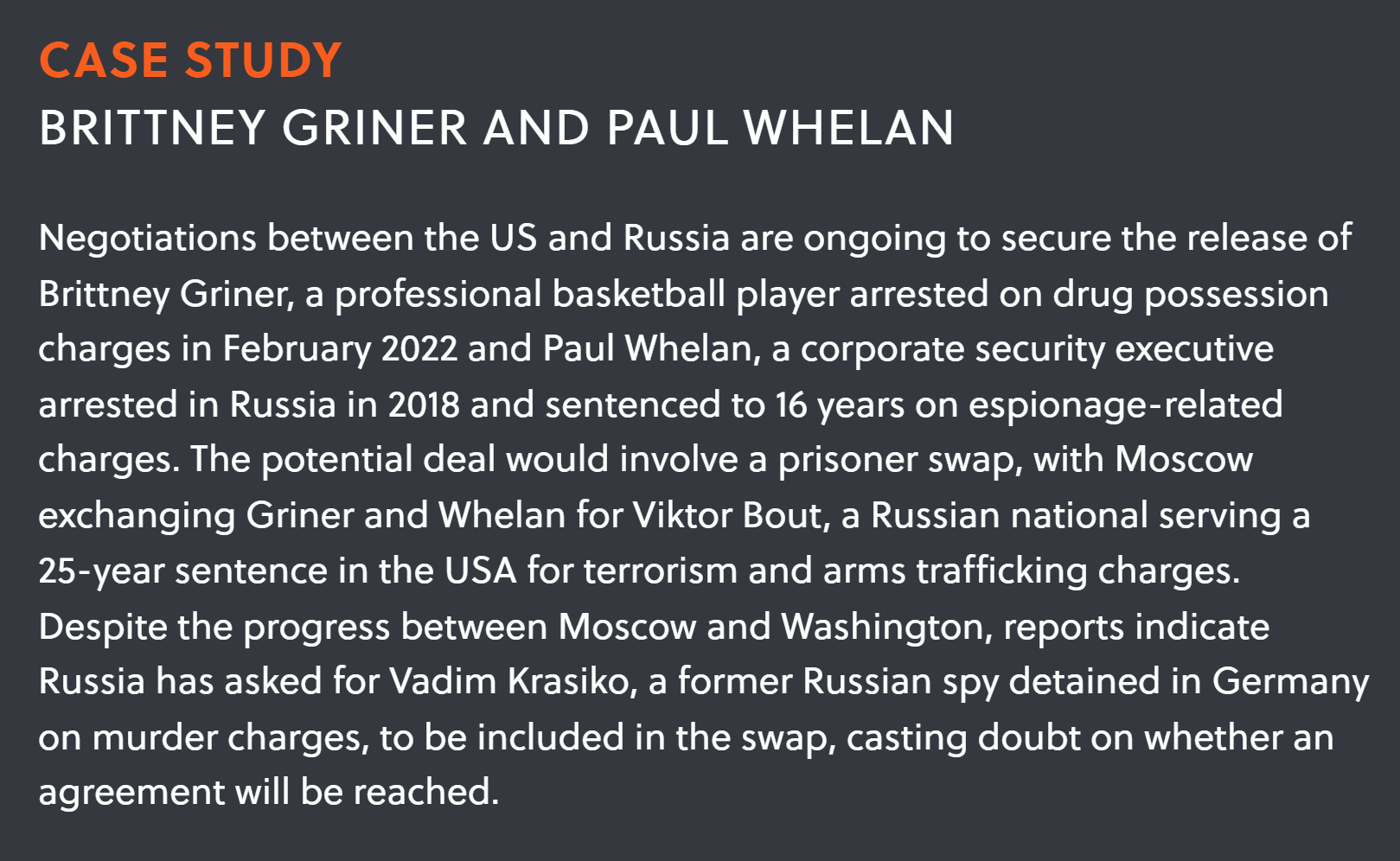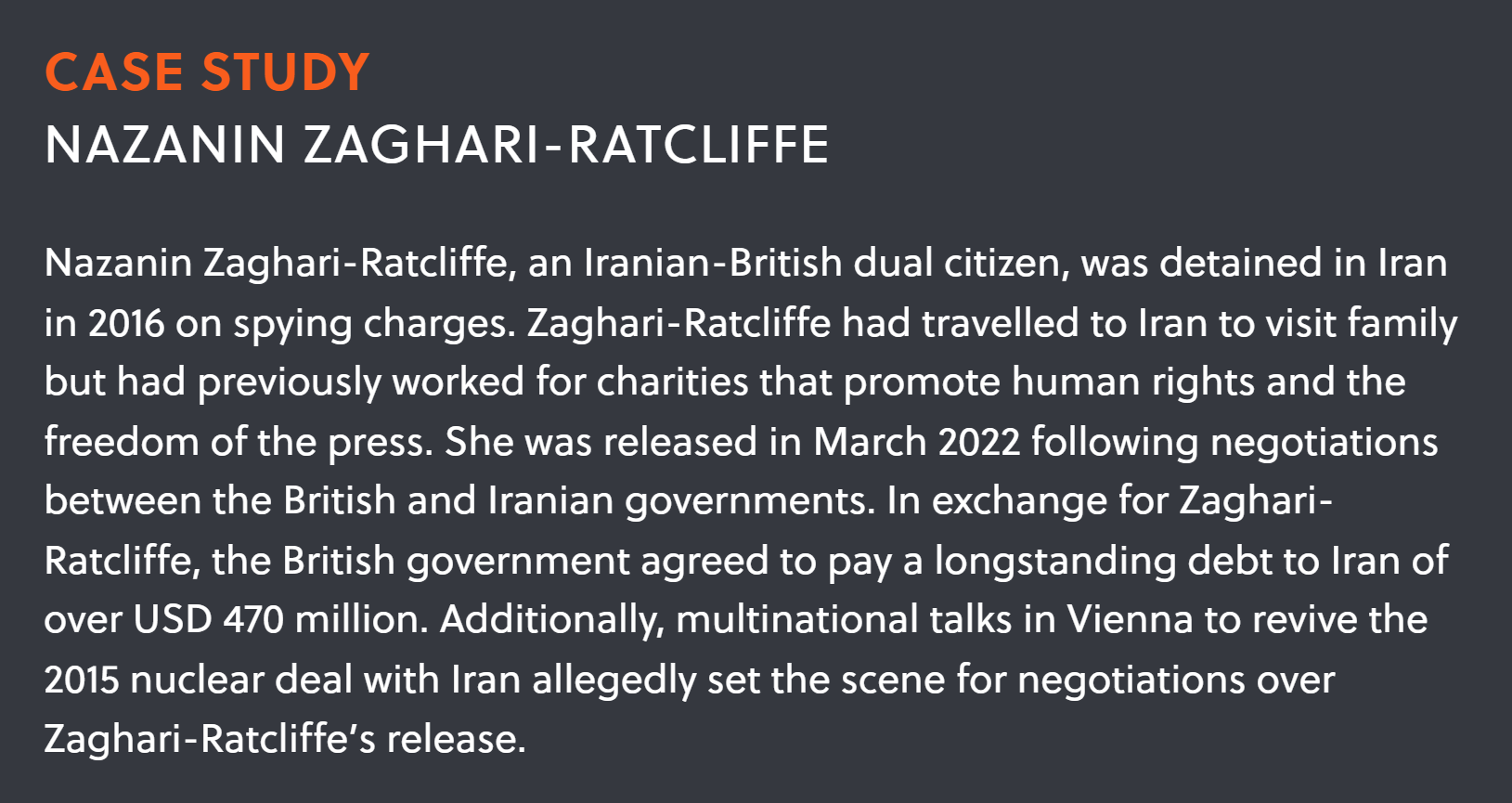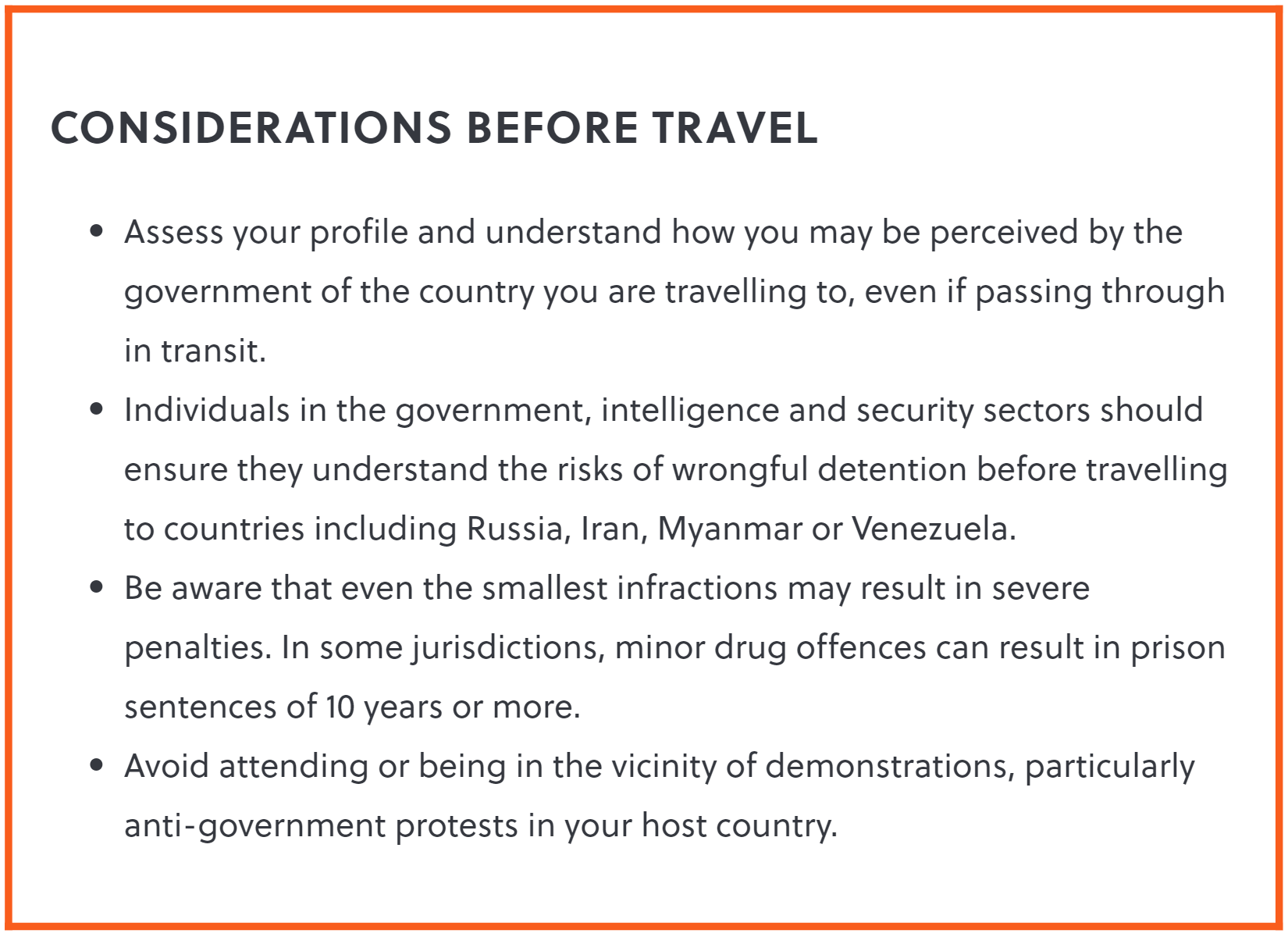Wrongful detention: The high stakes political game between rival governments

Amid heightened geopolitical tensions around the globe, wrongful detention remains a legitimate tool to achieve foreign policy objectives in the eyes of certain administrations. Although countries such as the US have taken steps to prevent and deter rival governments from wrongfully detaining their citizens, the practice is still prevalent. Victims continue to be used as bargaining chips in international disputes, highlighting the significant risks for travellers visiting specific jurisdictions.
THE POLITICS OF WRONGFUL DETENTION
The practice of wrongful detention, in which victims are held under duress, typically by foreign governments, remains an effective foreign policy tool for governments to extend their influence on the international stage. In countries under authoritarian regimes, such as Russia, Iran, Myanmar and Venezuela, where judiciaries and law enforcement bodies are under the strict control of the state, the detention of foreign citizens has proven to be an effective way of securing prisoner swaps or gaining concessions in foreign policy disputes and negotiations. Such detentions often last for a prolonged period and are typically resolved through high-level bilateral negotiations between governments which can take years to complete.
THOSE AT RISK
While any foreign citizen is a potential target for wrongful detention in countries such as Russia or Iran, the risk tends to be higher for US and European travellers. The political motivation behind wrongful detention cases highlights the importance of individuals considering how their profile and their actions might be perceived by foreign governments. Those working in the government, intelligence and security sectors are high-priority targets and risk being detained based on espionage charges. Similarly, journalists, regardless of whether they are travelling in a professional capacity, have the potential to be held on similar charges. However, it is not only professionals within specific sectors that are at risk, any citizen from countries with strained relations with the host state could be detained for a minor infraction, such as recreational drug use and be used as a bargaining chip in bilateral negotiations down the line.

THE BALANCING ACT OF NEGOTIATIONS
Negotiating the release of wrongfully detained foreign nationals is typically a complicated and drawn-out process, since the practice is politically motivated and aimed at forcing a foreign country to release legitimate wrongdoers or make concessions it would otherwise be unwilling to grant. Countries also tread a fine line in negotiations, as the objective is to return the individual home without making concessions or swapping prisoners that will be viewed negatively by the public. Additionally, as is the case with kidnap for ransom cases, by engaging with governments that utilise wrongful detention, there is a danger of incentivising states to use it as a tool for political leverage in the future. Moreover, in the case of the US and Russia, worsening relations and growing distrust in each other’s objectives is another factor which may complicate the dynamics of future negotiations.

THE CONSEQUENCES OF BEING ILL-PREPARED
The danger of wrongful detention is that individuals held in custody by foreign governments are the pawns caught in the middle of a costly geopolitical game, the results of which can lead to years spent in prison, often in inhumane conditions. Travellers to high-risk countries should heed their government’s advisories and make themselves aware of the risks of wrongful detention before embarking on their travels. Failure to do so could be the difference between a trouble-free visit or a prolonged ordeal that could have life-changing ramifications.

